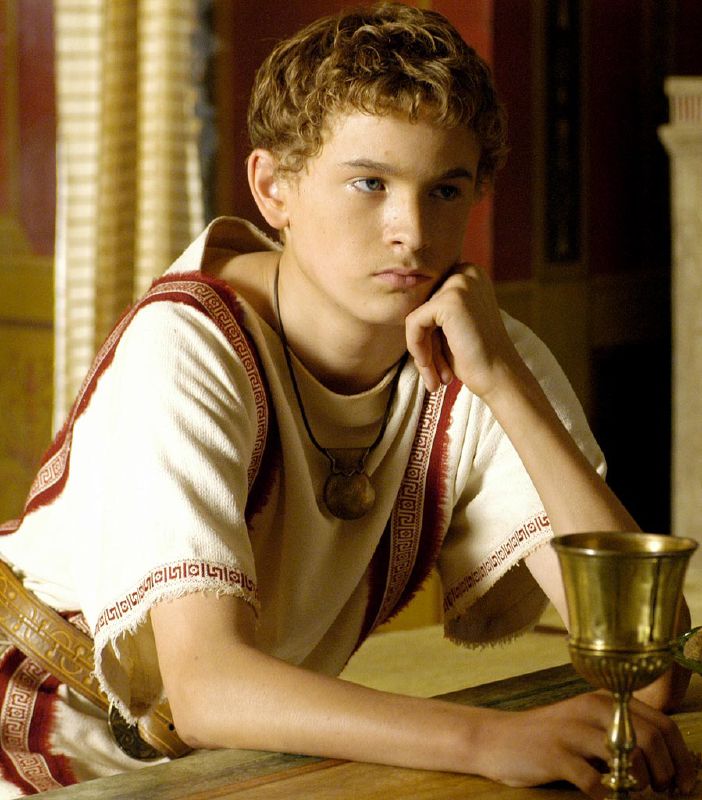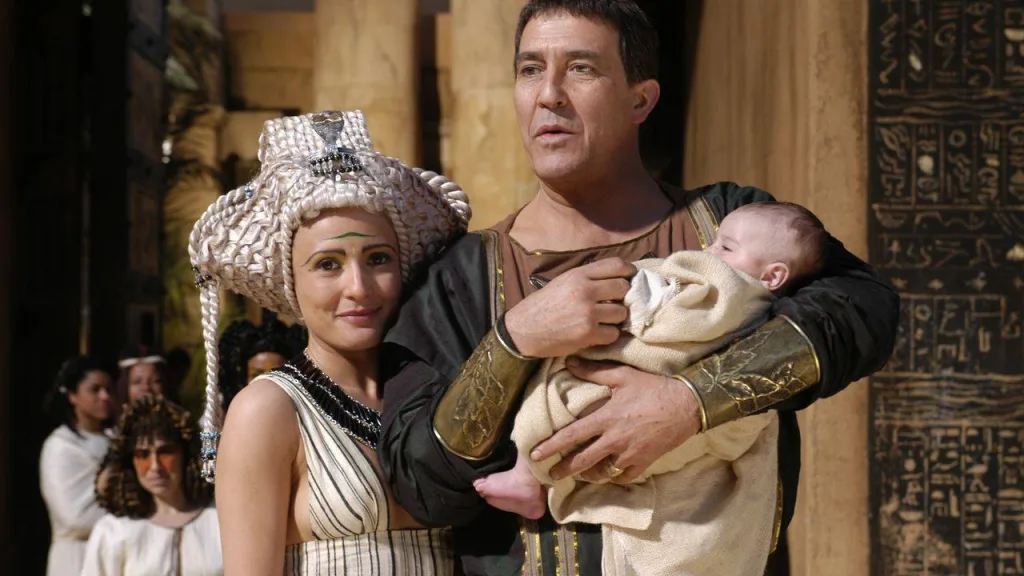Octavian, also known as Augustus, was a prominent figure in ancient Roman history. After the assassination of Julius Caesar in 44 BC, Octavian emerged as one of the key players in the power struggle that ensued. As the adopted son and heir of Caesar, Octavian sought to secure his position as the sole ruler of Rome and eliminate any potential threats to his reign.
One such threat was Caesarion, the son of Julius Caesar and Cleopatra VII, the famed queen of Egypt. Born in 47 BC, Caesarion was seen by some as a potential rival to Octavian’s claim to power. As the only known son of Julius Caesar, Caesarion had a legitimate claim to the throne, at least in the eyes of some.
However, Octavian was determined to eliminate any potential rivals and secure his position as the undisputed ruler of Rome. By eliminating Caesarion, Octavian ensured that there would be no competing claim to the throne, either from Caesar’s bloodline or from the Ptolemaic dynasty that Cleopatra represented.
The exact reasons behind Octavian’s decision to kill Caesarion are not entirely clear. Some historians speculate that Octavian saw Caesarion as a threat to his legitimacy and wanted to eliminate any potential challenges to his rule. Others argue that Octavian may have been influenced by political considerations, as Caesarion represented a potential rallying point for those who opposed Octavian’s rule.
It is also worth noting that Octavian’s actions were not without precedent. The Roman Republic had a long history of political violence and power struggles, with rival factions often resorting to assassination to eliminate their opponents. Octavian’s decision to kill Caesarion can thus be seen as part of this broader pattern of political violence in Roman history.
Ultimately, Octavian’s actions were successful in securing his position as the first Roman Emperor. He went on to establish the Roman Empire and ruled as Augustus for over four decades. The elimination of Caesarion ensured that there would be no further challenges to his reign and solidified his claim to power.
Octavian’s decision to kill Caesarion was driven by a desire to eliminate any potential threats to his rule and secure his position as the sole ruler of Rome. By eliminating Caesarion, Octavian ensured that there would be no competing claim to the throne and solidified his claim to power. The assassination of Caesarion was part of a broader pattern of political violence in Roman history and played a crucial role in the establishment of the Roman Empire.
Why Did Octavian Order Caesarion Death?
Octavian, later known as Augustus, ordered the death of Caesarion, the son of Julius Caesar and Cleopatra, for several reasons. These reasons can be categorized as political, strategic, and personal.
Political reasons:
1. Eliminating a potential rival: Caesarion was seen as a potential threat to Octavian’s claim to power and authority. As the son of Julius Caesar, he had a legitimate claim to the Roman throne, which could potentially challenge Octavian’s position as the sole ruler of Rome.
2. Consolidating power: By eliminating Caesarion, Octavian sought to solidify his control over the Roman Empire. Removing any potential contenders to the throne ensured that he would face no opposition or challenges to his rule.
Strategic reasons:
1. Maintaining control over Egypt: Caesarion, as the son of Cleopatra, had a strong connection to Egypt. By eliminating him, Octavian ensured that there would be no rival claimant to the throne of Egypt. This allowed Octavian to maintain direct control over Egypt, a valuable and resource-rich province of the Roman Empire.
2. Sending a message to other potential threats: Octavian’s decision to kill Caesarion served as a warning to other potential rivals or challengers. It demonstrated his ruthlessness and determination to maintain his position of power, discouraging any future attempts to challenge his authority.
Personal reasons:
1. Revenge for Julius Caesar’s assassination: Octavian may have ordered Caesarion’s death as a way to avenge the assassination of his adoptive father, Julius Caesar. By eliminating the offspring of Caesar’s affair with Cleopatra, Octavian could exact revenge for the betrayal and murder of his beloved mentor.
Octavian ordered the death of Caesarion to eliminate a potential rival, consolidate his power, maintain control over Egypt, send a message to other potential threats, and seek revenge for Julius Caesar’s assassination.

Why Was Julius Caesar Assassinated?
Julius Caesar was assassinated primarily due to concerns over his increasing power and its potential threat to the Roman Republic. The reasons behind his assassination can be attributed to the following factors:
1. Concentration of Power: Caesar’s rise to power as a dictator led to a significant centralization of authority. This concentration of power in the hands of one individual was seen by some senators as a direct challenge to the traditional republican system of government, which was based on a balance of power and shared decision-making.
2. Erosion of the Senate’s Authority: Caesar’s actions, such as appointing his allies to key positions and bypassing traditional institutions, undermined the authority of the Senate. This caused discontent among the senators who saw their power and influence diminishing under Caesar’s rule.
3. Fear of Tyranny: Many senators feared that Caesar’s growing power and popularity would eventually lead to him establishing a monarchy or dictatorship, effectively ending the republican form of government that had been in place for centuries. They believed that by assassinating Caesar, they were acting in defense of the Roman Republic and preserving its democratic ideals.
4. Personal Ambitions and Rivalries: Some senators may have had personal animosities or ambitions that fueled their participation in the assassination plot. They saw Caesar as a threat to their own political aspirations and used the opportunity presented by his concentration of power to eliminate him.
5. Public Perception: The senators who assassinated Caesar presented their act as an act of tyrannicide, framing it as a necessary sacrifice for the greater good of the Roman Republic. By portraying Caesar as a potential tyrant, they sought to gain public support for their actions and legitimize the assassination.
It is important to note that the assassination of Julius Caesar was a complex event with multiple motivations and factors at play. The concerns over Caesar’s concentration of power, erosion of traditional institutions, and the fear of tyranny were key factors that ultimately led to his assassination.
Why Did Julius Caesar Choose Octavian?
Julius Caesar chose Octavian as his primary heir for several reasons:
1. Family connection: Octavian was Caesar’s grand-nephew, and by adopting him, Caesar ensured that the power would remain within their family. This familial tie was crucial for Caesar as he wanted to maintain a sense of continuity and stability in the Roman Empire.
2. Political alliance: Octavian was a politically shrewd and ambitious young man who showed promise in the political arena. By choosing Octavian as his heir, Caesar could rely on his support and loyalty in furthering Caesar’s political agenda and maintaining his legacy.
3. Military prowess: Octavian had already shown his military skills and leadership abilities at a young age. Caesar recognized Octavian’s potential as a military commander and saw him as someone who could continue his military conquests and maintain the Roman Empire’s expansion.
4. Lack of legitimate children: Under Roman law, Caesar had no living legitimate children, leaving him without a clear successor. By adopting Octavian, Caesar filled this void and established a legitimate heir to his position and power.
5. Popular support: Octavian enjoyed significant support and admiration from the Roman people, which further strengthened his position as Caesar’s heir. This popularity made Octavian a viable choice for carrying on Caesar’s legacy and maintaining stability in Rome.
Julius Caesar’s choice of Octavian as his primary heir was influenced by factors such as family ties, political alliances, military prowess, lack of legitimate children, and popular support. By selecting Octavian, Caesar aimed to ensure the continuation of his legacy and maintain stability in the Roman Empire.
Was Caesarion Really Caesar’s Son?
Caesarion, also known as “little Caesar,” was believed to be the son of Cleopatra and Julius Caesar. However, the question of his true paternity is still debated among historians. Here are some key points to consider:
1. Historical accounts: Ancient historians such as Plutarch and Suetonius mention that Cleopatra claimed Caesar as the father of Caesarion. Cleopatra herself promoted this belief to legitimize her son’s claim to the throne.
2. Cleopatra’s visit to Rome: Cleopatra visited Rome in 46 B.C., during which she stayed with Caesar. It is during this time that the relationship between Cleopatra and Caesar is believed to have begun. Caesarion was born in 47 B.C., approximately nine months after Cleopatra’s return to Egypt.
3. Cleopatra’s other relationships: Cleopatra had relationships with other powerful men, including Mark Antony, after Caesar’s death. However, she always maintained that Caesar was the father of Caesarion, even when she was involved with Antony.
4. Roman political implications: Caesarion’s paternity was a matter of political significance. If he was indeed Caesar’s son, it would strengthen his claim to the Roman empire and potentially challenge Octavian (later known as Augustus), who was Caesar’s adopted heir.
5. Genetic testing: Unfortunately, there is no surviving biological evidence to conclusively prove or disprove Caesar’s paternity. DNA testing is not possible due to the lack of preserved remains of Caesar or Caesarion.
While it is widely believed that Caesarion was the son of Julius Caesar, the absence of concrete evidence leaves room for speculation. Cleopatra’s claim and the timing of Caesarion’s birth suggest a strong possibility of Caesar being his father, but the true paternity remains uncertain.

Conclusion
Octavian’s rise to power and elimination of his rivals, including Caesarion, solidified his position as the sole ruler of Rome and Egypt. With the death of Cleopatra and her son, the Ptolemaic dynasty came to an end, marking a significant turning point in the history of Egypt. Octavian, who would later become known as Augustus, went on to establish the Roman Empire and usher in a period of relative peace and stability known as the Pax Romana. His rule laid the foundation for centuries of Roman dominance and shaped the course of Western civilization. Octavian’s strategic moves and political cunning ultimately secured his place as one of the most influential figures in ancient history.
